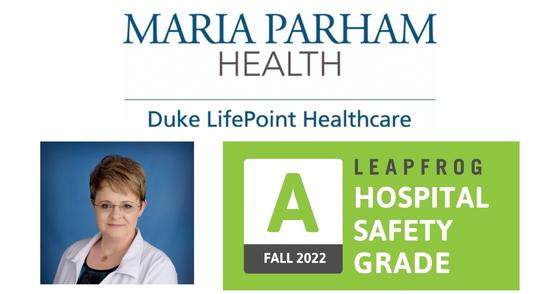-information courtesy of Maria Parham Health and Colleen Truax MSN, APRN, FNP-C
March is National Colorectal Cancer Awareness Month. If you are 45 or older, it’s time to think about getting a colonoscopy.
Health experts say screening increases the chance of early detection – which increases greatly the odds of successful treatment. During a colonoscopy, polyps can be removed before they become cancerous, according to Colleen Truax, a nurse practitioner in gastroenterology at Maria Parham Health.
The American Cancer Society recommends people get screened at age 45 – or younger for those at higher risk. Colorectal cancer is the third most common cancer diagnosed in both men and women, excluding skin cancers. It is also the third leading cause of cancer deaths in both men and women. And while most of these cases occur in people 50 and older, the disease can occur in men and women at any age.
Fortunately, colonoscopies are an easier procedure than many realize. Shortly before the procedure, you will be given medications to minimize your discomfort. This procedure is so tolerable, in fact, that many people will ask, “When will we start?” only to be told the procedure has already begun. During the approximately 30-minute procedure, any polyps found will be removed by the doctor, and tissue samples will be sent to a lab for a biopsy.
Colonoscopies are critical to diagnosing cancer early because the beginning stages of colorectal cancer can often appear without symptoms. A colonoscopy can detect cancer early, making it much easier to treat. In fact, thanks in large part to colonoscopies, the overall incidence of, and death rates associated with, colorectal cancers have been on the decline for more than a decade. But this downward trend is mostly in older adults. In people younger than 50, rates have been increasing by one to two percent a year since the mid-1990’s. Although the early stages of colorectal cancer are often symptomless, there are some common signs of colorectal cancers you should be aware of, according to the American Cancer Society, including:
- Bleeding from the rectum;
- Blood in the stool or in the toilet after having a bowel movement;
- Dark or black stools;
- Change in your bowel habits, including diarrhea or constipation or a narrowing of your stool, that lasts for more than a few days;
- Cramping, pain or discomfort in the lower abdomen;
- Weakness and fatigue; and
- Decreased appetite and unintentional weight loss.
While these symptoms can also be indicative of other health conditions, you should always talk to your doctor about them so he or she can help you get to the root of the issue and determine the underlying cause. In addition to scheduling your colonoscopy and keeping an eye out for common symptoms, you can be proactive in preventing colon cancer by living a healthy lifestyle that includes daily exercise, a balanced diet, maintaining a healthy weight, limiting your alcohol intake and eliminating smoking.
Contact Maria Parham Health at 800.424.DOCS or visit MariaParham.com to schedule your colonoscopy today. For more information about colorectal cancer, visit https://www.cancer.org/cancer/colon.
